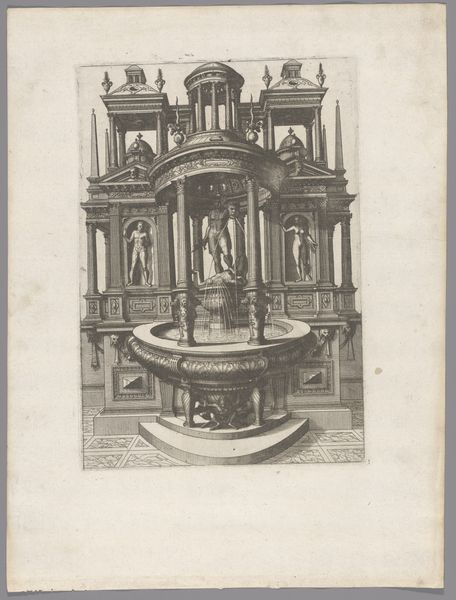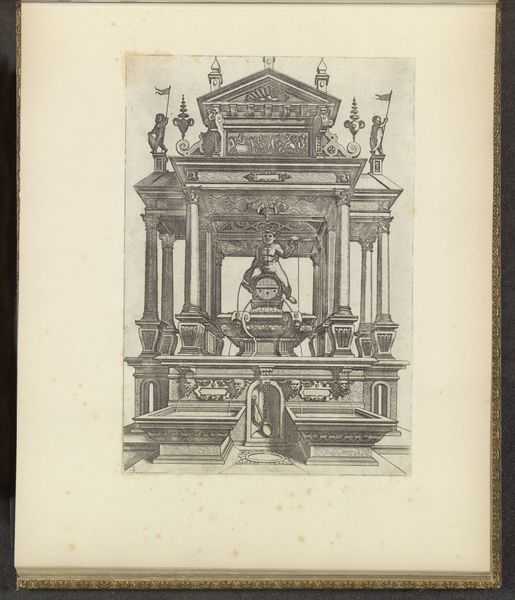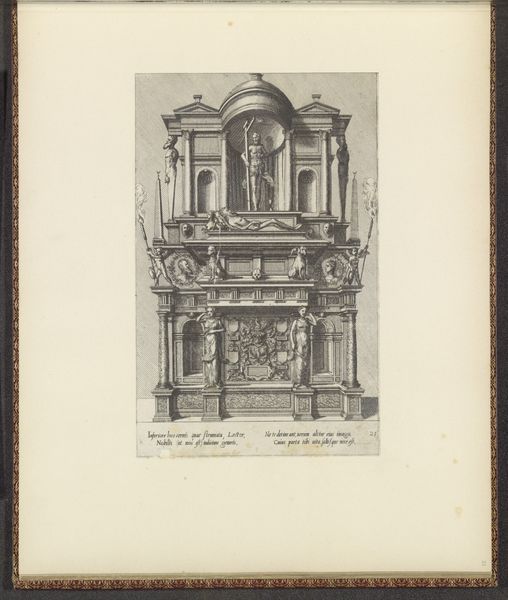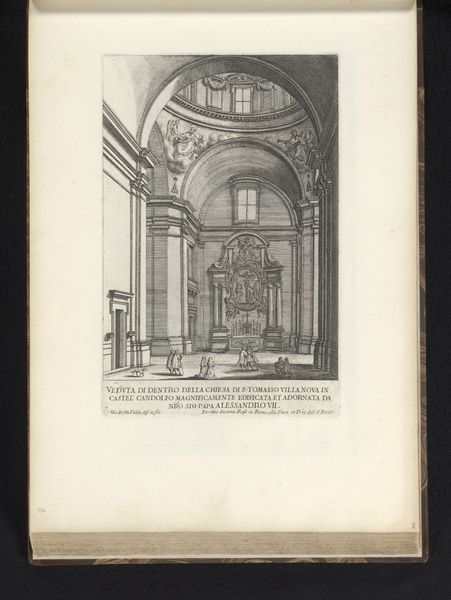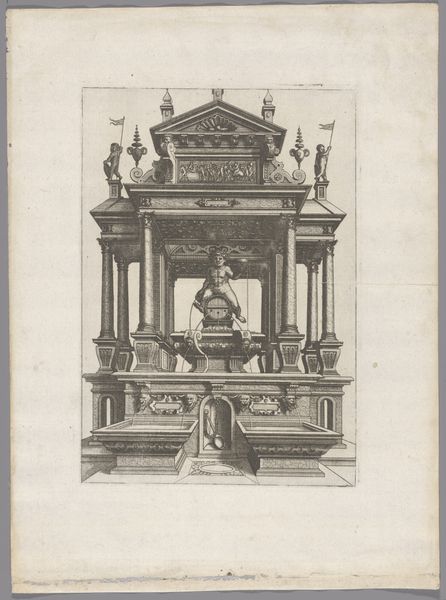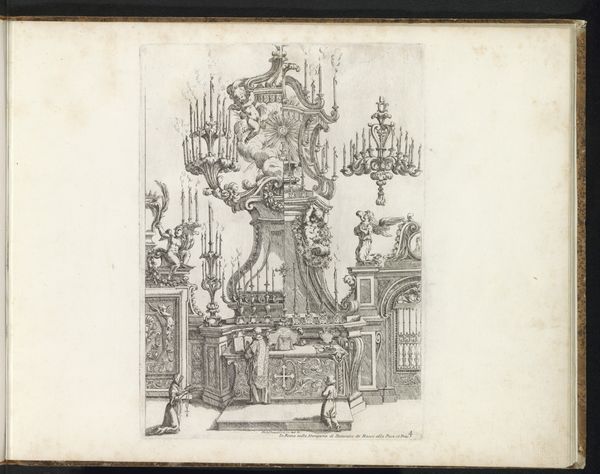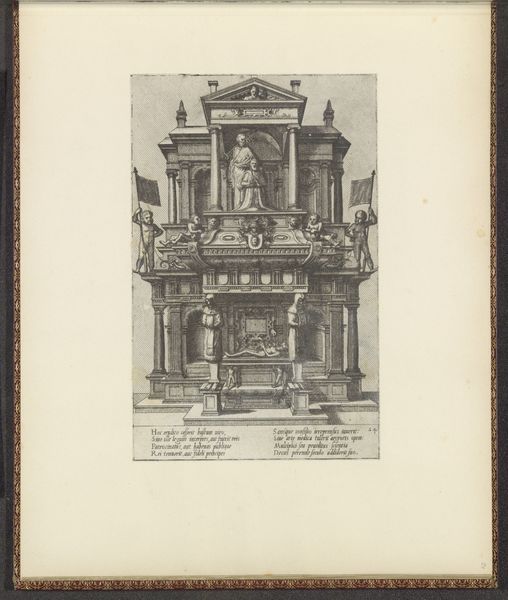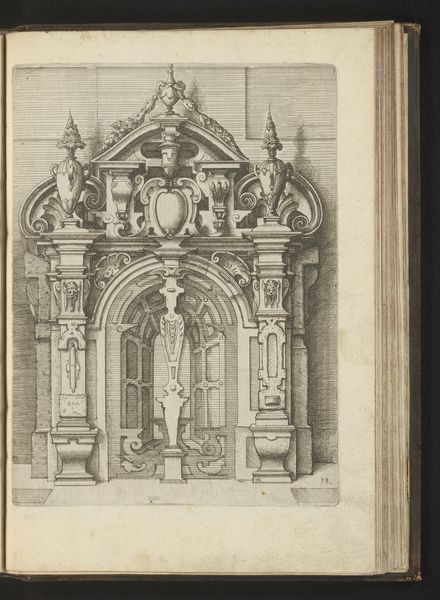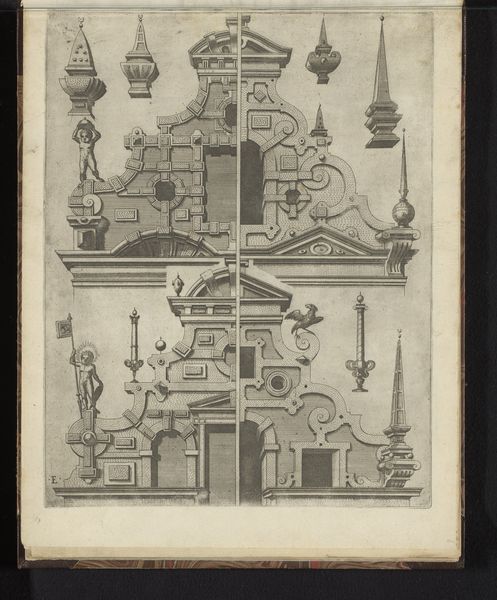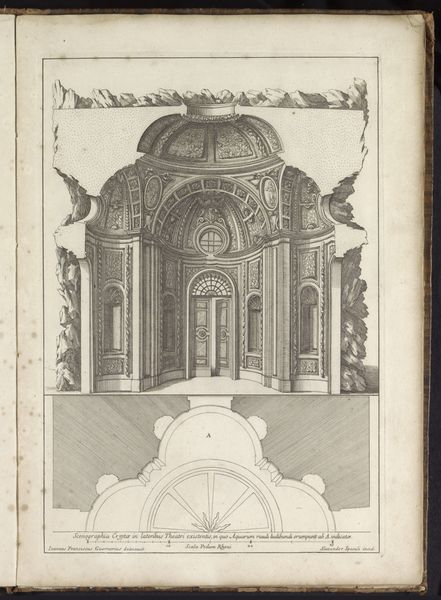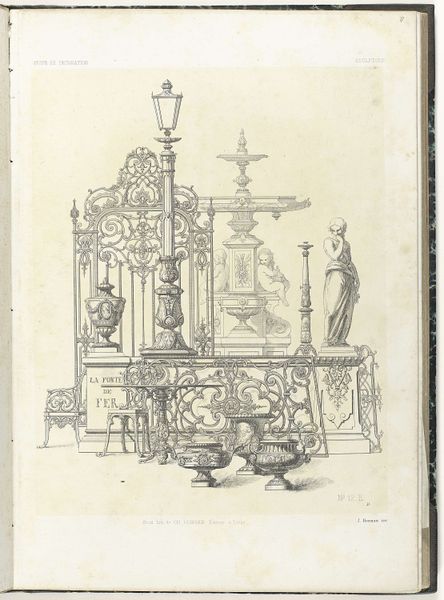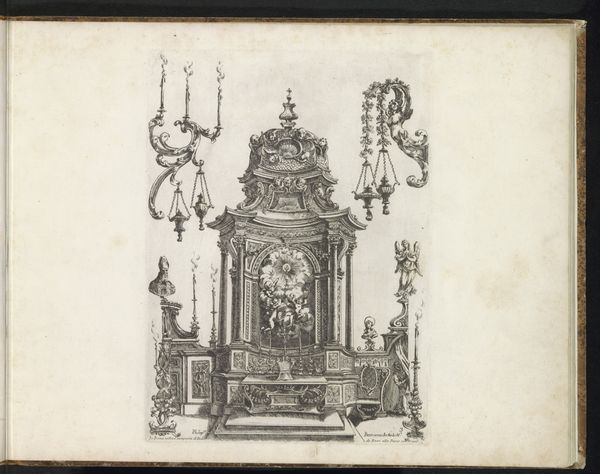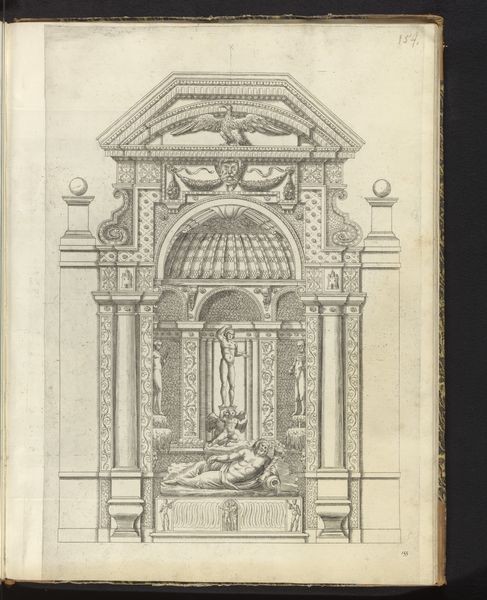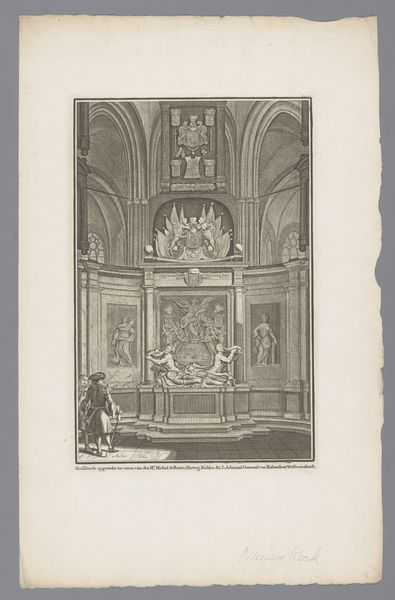
drawing, print, metal, ink, engraving, architecture
#
drawing
#
aged paper
#
toned paper
#
baroque
# print
#
metal
#
pen sketch
#
old engraving style
#
sketch book
#
figuration
#
personal sketchbook
#
ink
#
pen-ink sketch
#
pen work
#
sketchbook drawing
#
history-painting
#
sketchbook art
#
engraving
#
architecture
Dimensions: height 249 mm, width 173 mm
Copyright: Rijks Museum: Open Domain
Editor: Here we have a print from around 1600 by Johannes or Lucas van Doetechum, titled "Ronde fontein met een beeld van David", or "Round Fountain with a Statue of David." The use of engraving and ink gives it such fine detail. The fountain is so elaborate, like a stage! What catches your eye in this work? Curator: The etching itself tells a story about labor, class, and the very idea of artistic value. Engravings like these, mass-produced, democratized access to images in a way that paintings never could. Consider the artisanal skill required to create this intricate metal plate. Editor: That's a great point, about how accessible these were in comparison to paintings! I hadn't thought of that. Curator: And the material realities: the cost of paper, ink, the press, not to mention the etcher’s time and training. These details speak volumes about the society that produced and consumed it. What do you make of David being presented like this? Editor: He seems like a trophy himself! Curator: Precisely! And trophies are meant to circulate, be displayed, and accrue value. Now, think about who might have commissioned such a print, and what function it served in their lives. A study aid, perhaps? An object of conversation? Editor: It's so interesting to think about the print not just as art, but as a commodity with a social function. I'll never look at old prints the same way again. Curator: Exactly! By thinking of this engraving as a product of material conditions, rather than simply an image, we gain a deeper appreciation for its cultural significance.
Comments
No comments
Be the first to comment and join the conversation on the ultimate creative platform.
